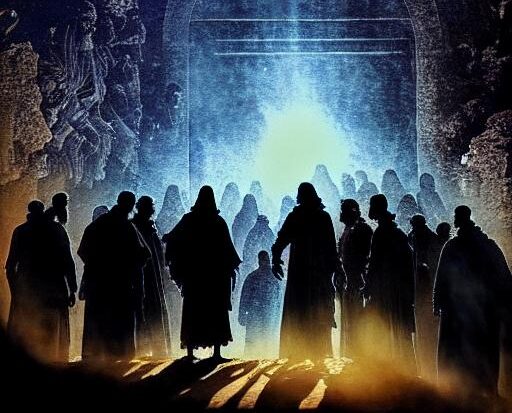The teachings of Bahá’u’lláh, the founder of the Bahá’í Faith, encompass a profound array of concepts that urge humanity toward a transformative paradigm. His remarkable claims compel adherents and seekers alike to reconsider the dogmas of their past, beckoning them to embrace a broader understanding of spirituality and unity. In this discourse, we shall delve into the essence of Bahá’u’lláh’s teachings, elucidate their implications, and explore their potential to incite a paradigmatic shift in human consciousness.
At the heart of Bahá’u’lláh’s revelation lies the assertion that God has sent a succession of Manifestations throughout history, each bringing with them divine guidance tailored to the needs of the people during their respective eras. This idea of progressive revelation is a revolutionary perspective that posits God’s messages are not static. Each Manifestation, including Jesus, Muhammad, Moses, and indeed Bahá’u’lláh himself, represents a continuum contributing to an evolving understanding of the divine. Such a view dispels the historical fracture between different religions, instead promoting a vision of cohesion and unity among diverse faiths.
This principle invites followers to recognize that the spiritual truth encapsulated within various religious traditions is part of a singular narrative of divine purpose. Consequently, understanding Bahá’u’lláh’s teachings necessitates an engagement with core tenets that transcend cultural and temporal boundaries. For instance, the emphasis on the oneness of humanity calls into question long-standing reifications of divisions based on ethnicity, nationality, or socio-economic status. It posits that all human beings are members of one global family, interconnected and interdependent in their aspirations and struggles.
Furthermore, Bahá’u’lláh articulated a vision of world peace—a revolutionary concept that resounds profoundly in today’s tumultuous geopolitical landscape. His claim that peace is not merely an ephemeral state, but a requisite foundation for progress, urges societies to strive toward systems rooted in justice, equality, and compassion. The quest for peace encapsulates various elements, including disarmament, the promotion of education, and the eradication of prejudice—initiatives aimed at fostering a dialogue of understanding among disparate communities. By engaging with Bahá’u’lláh’s teachings, individuals can cultivate a cooperative spirit that transcends ideological conflicts, laying the groundwork for a more united global civilization.
In the realm of social and economic development, Bahá’u’lláh addressed principles that seek to rejuvenate the socio-economic tapestry of society. The call for the elimination of extremes of wealth and poverty reflects an acute awareness of the disparities that inhibit human flourishing. Through the concept of economic justice, Bahá’u’lláh envisions a world where resources and opportunities are equitably distributed, thus enabling each individual to contribute meaningfully to the collective welfare. This principle fosters a climate where innovation and collaboration thrive, culminating in the advancement of society as a whole.
The role of education is another salient theme within Bahá’u’lláh’s teachings. He advocated for universal education as a fundamental human right, asserting its transformative power in equipping individuals with the tools necessary to navigate an increasingly complex world. This call to cultivate an educated populace is not merely about the transfer of knowledge; it encompasses the nurturing of moral and spiritual virtues, thereby enabling individuals to become responsible stewards of society. As education evolves, so too does the potential for humanity to address the multifarious challenges it faces, exemplifying a notable aspect of Bahá’u’lláh’s foresight.
Moreover, Bahá’u’lláh’s remarkable claims extend to the realm of personal development. He encouraged followers to cultivate virtues such as honesty, humility, and kindness, which serve as the bedrock for spiritual growth. This emphasis on character development invites individuals to introspect and align their actions with universal moral principles. Through a commitment to personal refinement, one can contribute to the uplifting of society, creating a ripple effect of positive transformation.
The implications of Bahá’u’lláh’s teachings are profound, urging humanity to reconsider its paradigms. The notion that divine guidance is ongoing and relevant challenges adherents to remain open to new interpretations and applications of spiritual truths. This essential openness fosters a mindset conducive to collaboration and dialogue, enabling disparate communities to engage meaningfully in discussions surrounding shared values and ethics.
Engagement with Bahá’u’lláh’s claims encourages curiosity about the interconnectedness of humanity and the divine. Each individual, as part of the collective whole, possesses the capacity to experience a personal relationship with God, which Bahá’u’lláh has profoundly emphasized. This divine connection ignites an earnest inquiry into personal purpose, prompting questions about one’s role in the overarching narrative of humanity’s spiritual evolution.
In conclusion, the remarkable claims made by Bahá’u’lláh inspire a reevaluation of entrenched perspectives. His teachings, embodying principles such as the oneness of humanity, the pursuit of peace, and the necessity of education, serve as guiding lights for navigating the complexities of contemporary existence. An exploration of these ideas reveals not only their relevance to today’s global challenges but also their potential to stimulate profound personal and communal transformations. Those willing to contemplate these teachings embark on a journey of discovery—one that aligns the individual spirit with the expansive vision of a harmonious, unified world.
